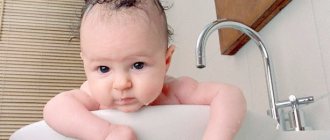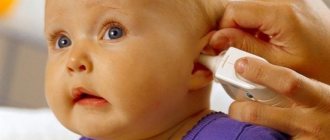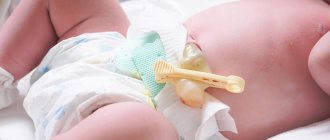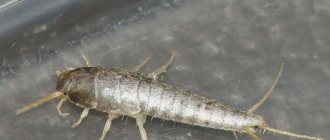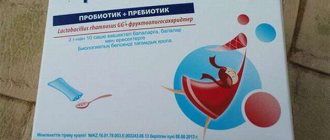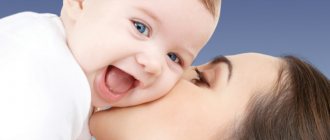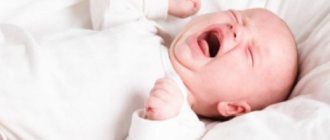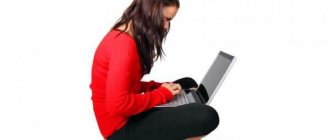Parents have relied on the pacifier to soothe a crying baby for decades. But is it right for your baby? A pacifier for a newborn - benefits and harms, when to give a pacifier while breastfed and bottle-fed, how to wean off a pacifier at 1.5 and 2 years - the main questions of our conversation with neonatologist Valeria Maksimovna Shchelkunova from Hospital IMES Levante Benidorm, Spain.
— Valeria Maksimovna, what are pacifiers for?
- Pacifiers were invented for one big purpose - to make mom’s life easier. The baby has a very strong innate sucking reflex. Its role is to provide the baby with nutrition, without which life is impossible.
A pacifier for a baby is an effective way to self-soothe.
Every day a child is faced with a lot of new things, which causes emotional imbalance. And here it may be necessary to calm him down. An alternative to breastfeeding will be a pacifier, because mother cannot always be there.
— And if the baby sucks his finger or fist, will the pacifier be useful or harmful?
- A child aged 3-4 months makes a sucking movement in response to any irritation of the oral area. He does not control his movements and, if he accidentally catches a fist or finger, he will naturally suck it. This is not a big problem, but it can be traumatic - the baby can scratch himself. In this case, of course, you can use a pacifier.
At the age of 4-5 months, the child consciously brings his hands to his mouth. And you need to be sure that this is sucking, because more often than not this is how the child explores himself or scratches his gums when his teeth come in. Rodents are more likely to help here. Pacifiers are suitable for preventing injuries, but they will not solve the problem - at this age, children often spit out the pacifier and chew their fists.
— Are there situations when you should worry about this?
— At the age of one and a half to two years, the sucking reflex fades, but the emotional attachment to the pacifier becomes stronger. If you take it away from a child who is not psychologically ready for this, he, as before, will try to fight stress with the help of the sucking reflex. But instead of a pacifier, he will begin to suck a finger, a fist, corners of a blanket, clothes, toys. Some parents at this stage try to return the pacifier.
— At what age and how to wean a child off a pacifier?
— Weaning off the pacifier should be done gently and gradually from 1.5 years of age
. You need to teach your child to cope with stress in other ways - then there will be no thumb and fist sucking that you have to deal with. Moreover, if the child is 2 years old, there is no need to urgently remove the pacifier and listen to people who share the principle “out of sight, out of mind.”
— Is it advisable to use a pacifier when overeating?
— It is difficult to overeat while breastfeeding. There are situations when it is necessary to calm the child, and the mother acts in a proven way - she breastfeeds. This may encourage overeating. Some children have such a pronounced sucking reflex that even if the child is not hungry and nothing bothers him, he begins to be capricious in order to satisfy his need. In these cases, you need to give a pacifier.
— Is it true that artificial children especially need pacifiers?
- This is true. It is recommended that infants fed with infant formula be given a pacifier from the first days of life - after birth, the manifestation of the sucking reflex is the strongest.
The baby constantly wants to suck, especially in the early neonatal period. Nature intended that sucking is the most effective way to stimulate lactation. Therefore, in the first days, a newborn may “hang on his chest” not because he is hungry. It’s just that after birth, the child is engaged in programming lactation - and this is correct, it should be so.
Another thing is a child who receives formula. His sucking reflex is similar; the baby should do the same as his peers on breastfeeding, but cannot, because he does not receive breastfeeding. Formula feeding is not physiological. But the reflex can be satisfied, including for the baby’s peace of mind. This is where the pacifier comes to the mother’s aid.
Is there any harm from pacifiers?
— Valeria Maksimovna, what harm can come from nipples and is it true that pacifiers spoil the bite?
- Long-term use of a pacifier - more than three years - can lead to malocclusion. This is especially true when using classic rather than orthodontic nipples. The extinction of the sucking reflex occurs by the age of two years.
, and maintaining it is non-physiological. When sucking on a pacifier or bottle for a long time, an open (central teeth do not close) or distal type (overdeveloped upper jaw) malocclusion can form.
There are heated debates on this issue between orthodontists, dentists, pediatricians and developers of orthodontic pacifiers. The latter claim that when using such nipples, there is no change in the bite: they prevent the problem. My opinion is that a change in the position of the jaws relative to each other can occur. Everything is good in moderation.
— Can a pacifier cause more hiccups and regurgitation?
— The mechanism of sucking a pacifier and sucking a breast is different. Such problems arise if the nipple is introduced before the baby learns to suckle correctly and effectively from the breast. It may trap more air, causing hiccups or regurgitation, or it may latch on and suck only on the nipple, causing injury. Then the use of pads begins, which the child cannot adequately and correctly grasp and therefore again swallows a lot of air. If, against this background, the baby is very behind in weight gain, pacifiers should be abandoned until everything gets better.
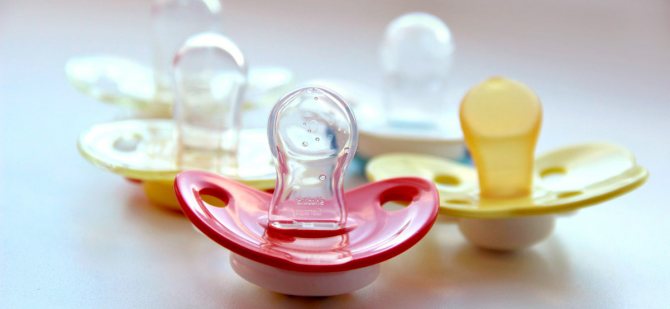
— Do children who suck a pacifier begin to speak later?
— These phenomena are not connected at all. Many children suck the pacifier for quite a long time, while they begin to talk very early. Speech therapy problems are most likely related to bite. Children with malocclusion more often than others have difficulty producing hissing and whistling consonants.
— Are pacifiers harmful to breastfeeding?
— The pacifier is very disturbing in the early stages, when lactation is developing. The process takes about three months until full, mature milk appears. Moreover, giving a pacifier before the baby learns to latch onto the breast correctly is dangerous - ineffective sucking does not lead to satiety. Inserting a nipple before milk begins to develop can lead to hypogalactia.
, because the baby does not stimulate the mother's milk production. But if lactation is established and the baby is steadily gaining weight, there should be no problems with breastfeeding when using a pacifier.
— Does the pacifier contribute to the development of stomatitis?
— Most often, infection occurs on damaged mucous membranes when an infectious agent enters due to neglect of the rules for disinfecting the pacifier or the use of the pacifier by several children.
Stomatitis is any inflammation of the oral mucosa of bacterial, viral or fungal etiology.
A pacifier is a baby’s personal item that needs to be constantly washed and sterilized. If it is not possible to immediately wash the pacifier, special wipes and spare nipples are used. If the pacifier is not in use, it should not be near the baby. And no one, not even a caring mother, should put a pacifier in her mouth.
A common situation is that the pacifier fell, the mother licked it and gave it to the child (later the same thing happens with a spoon)... This should not be allowed. A mother can be a carrier of a virus or bacteria and, without even knowing it, pass it on to the baby on the nipple. Everyone’s immunity and protective factors are different, and if the mother copes with opportunistic microflora, it will be foreign to the child, although the microflora of the baby and mother are similar.
Weaning off the pacifier. Light method. Helped us!!!!
Good afternoon, everyone. Perhaps this post will help someone part with pacifiers without nerves on the part of mother and babies. I want to tell you how we went through the journey of weaning off the pacifier! Just 2 weeks ago I could not even imagine that the children would part with them. They took the nipples from the first days in the maternity hospital. We've always been to Avent. And they were in constant access until 8 months. Then she gave them to fall asleep, on the street in strollers and when traveling in the car. After a year, I stopped giving it on the street. In 1.3-1.4 they stopped giving it in the car. But sleep without them was not possible. During the day they never asked for pacifiers, but at bedtime there was a ritual: we put on pajamas, put them in bed and give each one a pacifier (they asked for them). All night and during the daytime we had pacifiers, lost them, woke up, cried and put them in our mouths again, etc.
The first attempt to wean me was at one year and 5 months, just after reading the BB, deciding that I was ready and it was time - I didn’t give them a pacifier for the night. The children clearly did not appreciate this and both fell into hysterics. I thought they would scream and fall asleep - they really wanted to sleep. But that was not the case, they roared a lot, it lasted me 25 minutes and I returned the nipples. We fell asleep right away. And after that I didn’t even want to think about weaning. There were thoughts of weaning it closer to 2 years, provided that the husband would be on vacation (it’s still easier to cope with two crying children with a husband).
And so almost 3.5 months passed, when, again reading posts on the BB in another community, I came across a post about weaning and there, in one of the comments, the girl wrote in detail how she weaned a 1.8-year-old child from a pacifier by “cutting off” the pacifier. And I was hooked by this method, having clarified some questions with her, I decided to try it! But there was no special faith that it would help... The children had 3 nipples, 2 of them were bitten through. I decided to experiment on my daughter first, cut off the tip of the pacifier and gave it to her to sleep with. She didn't notice the difference at all!! I fell asleep with this pacifier in my mouth without any problems. On the 2nd day I cut off even more and it also worked. A few days later, I cut off my son’s pacifier, immediately to the same level as my daughter’s. He immediately realized that there was a problem with the sucker; he began to poke his finger into the hole and put it back on the chest of drawers. I immediately came up with a story that the mouse had chewed it. In the end, I still fell asleep with her. Then the kids and I got sick - sore throat, snot. As it turned out later, both of them had fangs. I don’t know whether it was successful or not that everything came together: weaning off the pacifier, illness, and teeth. But in the end, 2 weeks from the start of weaning, we got rid of pacifiers, recovered, and each of us got a fang.
I’m writing and can’t believe that everything went so easily! No hysterics!!! The nipples are already cut to the base. Naturally, they could no longer suck them. The main thing is to cut it off gradually and the child won’t even notice when all that’s left of the pacifier is plastic. Perhaps this “light weaning” will help someone else. I still can’t believe that we said goodbye to them. Tomorrow it will be 1 year and 9 months and we will be without them, HURRRA!
P.S. I’ve read so many methods, some just take away once and for all and don’t give, some give to mice/dogs/dolls; who throws it in the trash with their child; Some children refuse on their own. For us, these methods were completely useless, or mine simply had not grown up to them yet.
Our nipples)))
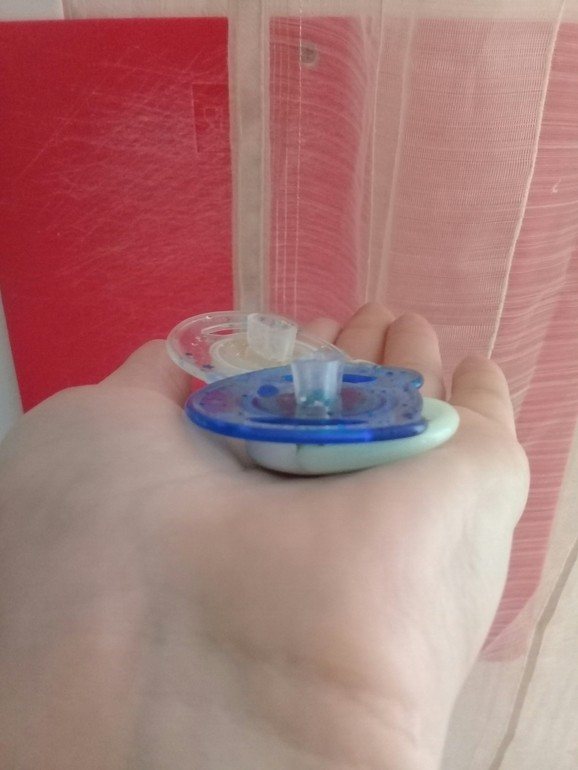
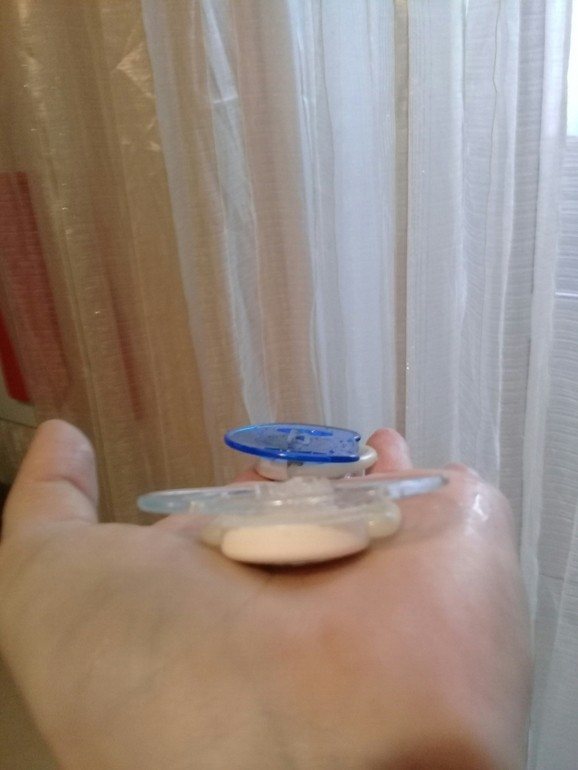
Baby's pacifier addiction
— Why does a child become calmer with a pacifier?
— The pacifier is soothing as the baby satisfies his sucking needs. An association arises with his mother - the most important person in his life, next to whom he feels comfortable and safe.
The pacifier helps to cope with painful sensations (but not with a pronounced pain reaction). For example, during colic, sucking stimulates intestinal motility, which helps remove gases from it faster. This in turn relieves pain.
— How does psychological dependence on a pacifier manifest in a child?
— It is important to talk about the formation of psychological dependence when an object becomes the only source of positive emotion and a way to prevent negative emotion. For a child, a pacifier is often a positive factor, and this depends on many reasons.
We can talk about addiction as such in a child over two years old
(until this age, it normally satisfies the sucking reflex), and it often occurs due to the fault of the parents. An adult should teach a child to cope with stress in different ways, and not give a pacifier every time. There should be no belief that a baby can only be comforted by a pacifier. When the baby is dissatisfied with something, cries or has fallen, it is enough to pick him up, talk to him gently, stroke him, show him a toy, direct his attention, and the effect will be the same.
The pacifier is a last resort in the matter of calming when other means do not work. If you understand this, psychological dependence will not arise.
— What is the WHO expert opinion - in what cases and to whom is a pacifier useful or harmful?
— The World Health Organization is categorical about nipples and does not allow their use during breastfeeding. One of the ten steps to successful breastfeeding is to prohibit medical personnel from advising or prescribing pacifiers, especially during the newborn period. But for bottle-fed children, the “green light” - for them, WHO recommends using pacifiers from birth.
How to wean a child off a pacifier quickly and painlessly?
How to wean a child off a pacifier quickly and painlessly?
From birth, we teach a child to suck a pacifier for two reasons. Firstly, it’s more convenient for the mother, because when the baby is naughty or teething, he can quickly be calmed down by giving him a pacifier. Secondly, the pacifier is needed in order to satisfy the sucking reflex.
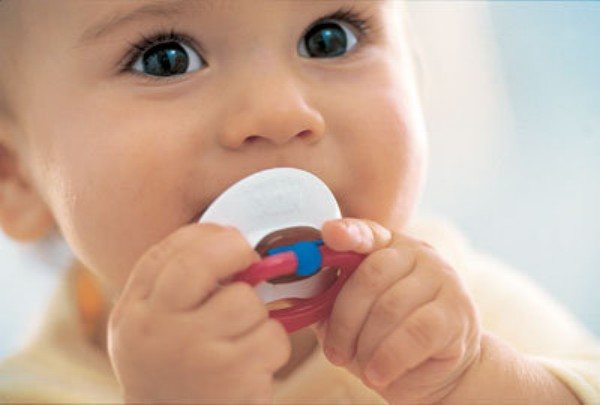
But soon the time comes to wean the child off the pacifier, which is associated with a huge number of problems and vagaries.
Here are some tips that will help every mother quickly and painlessly wean her child off the nipple:
- You can try to switch the child's attention to a toy, preferably a rubber one, so that it can be put in the mouth and chewed. When the baby falls asleep, stroke his back, head, and sing a song. However, this method doesn’t help much, it’s not so simple.
- You can try to wean it off by cutting off the tip of the pacifier. First you need to cut off just a little bit so that the child doesn’t notice anything, and cut off a little every day. Wait until the pacifier falls out of the baby's mouth. The pacifier will become uncomfortable for the child, and he himself will refuse it.
- If the child is older, then you can come up with a legend. For example, you can come up with a story about how a mouse came running, it was very hungry and ate a pacifier, and asked the child to say thank you. You can damage the pacifier and show it to the child as proof of the mouse's visit. You can come up with any legend, the main thing is that the baby believes and comes to terms with the fact that the pacifier is no longer there.
- Another method, vaguely similar to the previous one, could be like this. You can try to convince the child that the pussy in the yard vitally needs a pacifier, that his mother runs around catching mice all day, and he is so bored and sad that he needs help and give him the pacifier. If subsequently the child begins to be capricious and ask for a pacifier, then he can be reminded that he himself gave it to the kitten, etc. The main thing is not to force the baby to give up the pacifier, but to lead the conversation so that he himself agrees that the pacifier needs to be given away. Moreover, he was proud of it, you need to thank him, praise him that he did a very good deed.
- There is another interesting way. You can nail the pacifier to the wall, at such a level that the baby can come up and suck on it. It is unlikely that your baby will hang around the wall and suck on a pacifier when there are so many exciting things going on around him. This means that over time, interest in the pacifier will disappear anyway. The main thing is that the pacifier is visible and accessible, the baby is calm, but he will suck on it less and less each time.
When weaning a child off a pacifier, it is also worth considering several factors that can harm the child.
So, it’s worth weaning your child off the pacifier when:
- The child is not sick, he has no fever or snot.
- When a child is not teething, a pacifier helps the child relieve stress and pain.
- There are no stressful situations.
- The child stopped eating at night.
- The child sleeps peacefully and does not wake up throughout the night.
- The child eats well and has no allergies.
What are the consequences if a baby is left with a pacifier at night?
The most common problem for babies who cannot sleep without a pacifier is that the pacifier falls out of their mouth during deep sleep. As soon as the child discovers it is missing, he will scream and demand it back. This situation can repeat several times during the night. As a result, neither the baby nor the parents will get enough sleep.
In addition to sleep disturbance, sucking a pacifier at night can lead to the following negative consequences:
- Formation of malocclusion. Possibly due to regular, prolonged sucking. A pacifier with an anatomical shape will help reduce the risk.
- Problems with the gastrointestinal tract. Sucking promotes not only calming, but also the release of saliva and gastric juice. Excessive amounts of these fluids during sleep are harmful.
- Problems with breastfeeding . Frequent sucking interferes with the correct formation of nipple latch and can lead to the baby refusing the breast. It is especially not advisable to abuse the pacifier in the first months of establishing breastfeeding.
- Strangulation. The child cannot choke on the pacifier thanks to the protective disc. The danger arises after teething. The baby is able to chew the pacifier and then small pieces can get into the respiratory tract.
- Addiction. The more often your child sucks on a pacifier, the more difficult it will be to give it up.
